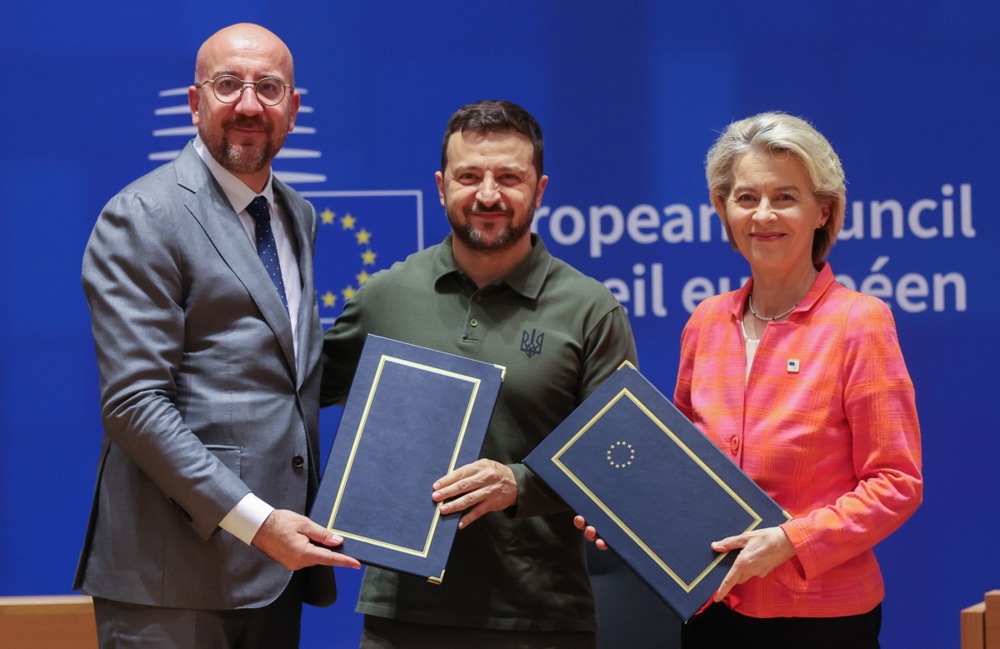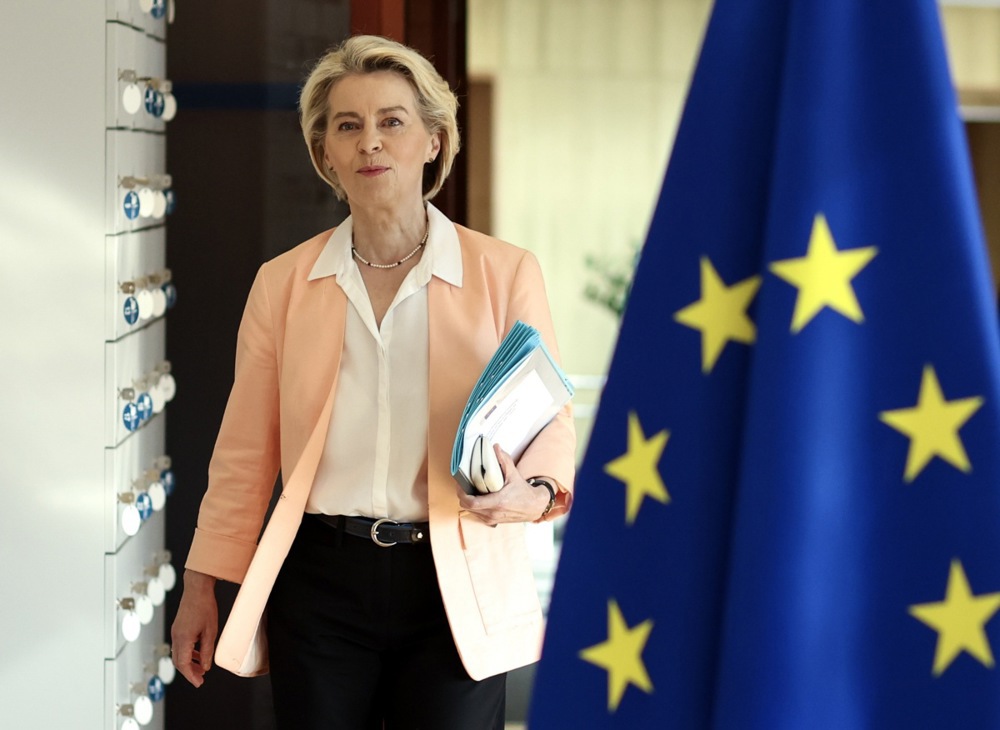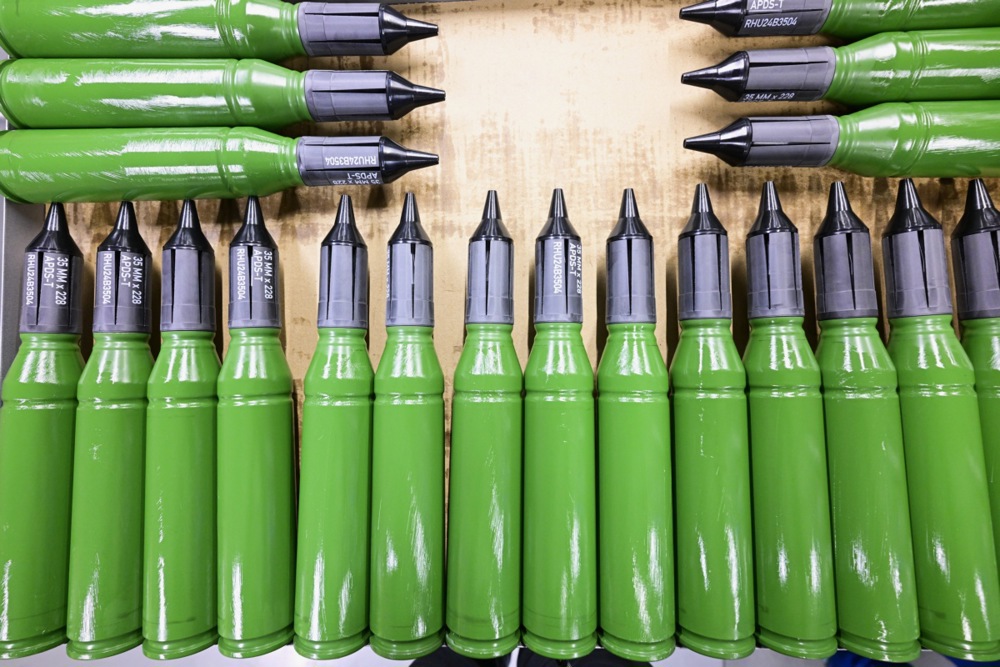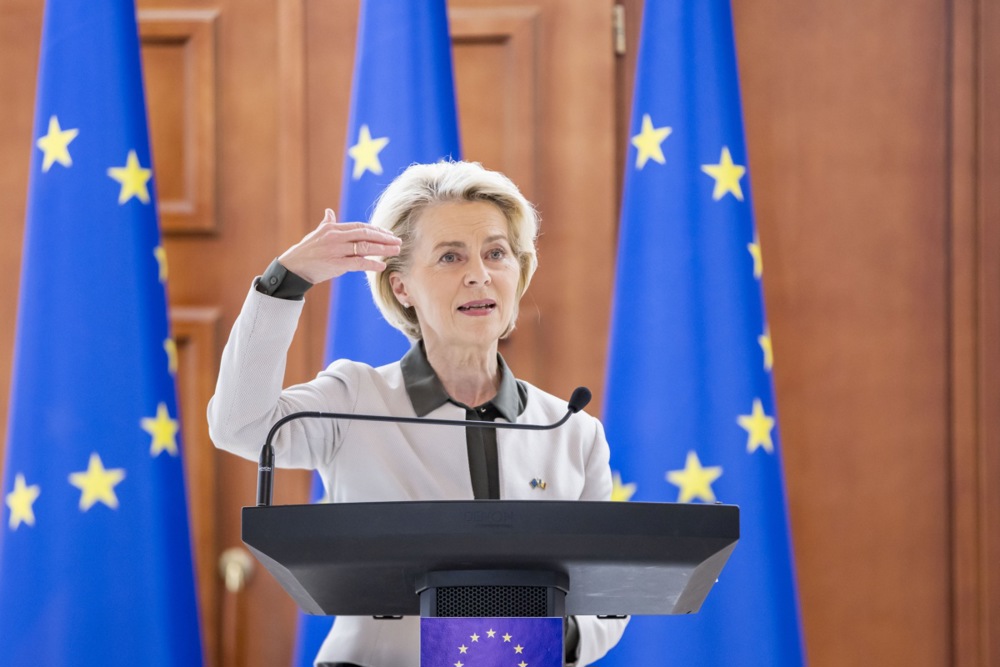The 2024-2029 Strategic Agenda, crafted in 2023 and endorsed in June 2024 by European Union leaders, has offered a glimpse into the bloc’s forthcoming priorities.
It highlighted a shift towards security and what some have seen as the absence of environmental commitment.
The eight-page strategic document emphasised support for the defence sector, aiming to enhance the EU’s capability to safeguard its interests and borders.
The agenda’s detailed approach to security was evident, with four main areas of focus: strengthening security and defence; combating crime and corruption; enhancing resilience and crisis response; and managing migration and borders.
It addressed contemporary dangers such as cyber and hybrid warfare, foreign manipulation, and threats to critical infrastructure, reflecting the EU’s response to ongoing geopolitical tensions and the war in Ukraine.
While the previous document leaned heavily towards “greener”, sustainable and environment-friendly policies, by contrast, the latest agenda reduced these commitments to broader policies, signalling an apparent de-prioritisation of environmental initiatives.
That was further evidenced by the lack of the term “Green Deal” in the 2024-2029 document, marking a potential shift in focus.
This shift is more clear when comparing the language used in both documents. The term “security” appears six times in the 2019-2024 agenda, whereas it features 14 times in the 2024-2029 agenda.
Although both agendas referenced climate change, a dedication to environmental policies in the latest agenda was notably reduced. The previous document’s broader and more detailed commitment to sustainability has been overshadowed by an increased focus on enhancing security measures.

Although the latest EU Strategic Agenda responded directly to the EU’s current challenges, the absence of enhanced environmental commitments at the expense of securing Europe’s defence signalled EU leaders’ revised strategy for the bloc.
On July 18, the European Commission, led by its President Ursula von der Leyen, committed to maintaining the targets of the European Green Deal.
“A stronger Europe that implements what it agrees in a fair way. And that sticks to the targets of the European Green Deal with pragmatism, technology-neutrality and innovation,” she said at the time.
“In the last years, we have concluded with global partners 35 new agreements on clean tech, hydrogen and critical raw materials. This is the European Green Deal in action.
“So I want to be clear. We will stay the course on our new growth strategy and the goals we set for 2030 and 2050,” she added.
This commitment earned von der Leyen crucial support from The Greens MEPs and secured her a second term as EC President earlier in July.
The Greens/EFA European Parliament group has formally decided to support her as President, their members declared after the vote.
The Greens/EFA Group has formally decided to support Ursula @vonderleyen as @EU_Commission President.
As part of the 4-party majority, we have secured commitments on the #EUGreenDeal, making the EU more socially fair & protecting democracy.
We keep the far-right out of power.
— Greens/EFA in the EU Parliament ? (@GreensEFA) July 18, 2024
The current Strategic Agenda’s shift towards a focus on defence and security amid the backdrop of growing geopolitical tensions and increased military budgets across Europe has suggested a recalibration of priorities.
Still the pivot towards a defence-oriented Europe had been generally anticipated due to the conflict in Ukraine.
In fact, many European countries have increased their military budgets as they have looked for ways to enrol more individuals for their respective armed forces.
The relative downgrading of the importance of a greener Europe may have come as something of a surprise to some but it certainly seemed to reflect the overall vision for the EU in the next five years.
In looking for recruits, the plans aim to use screening or questionnaires by which top candidates can be selected.https://t.co/6KsQ14oISn
— Brussels Signal (@brusselssignal) July 23, 2024





